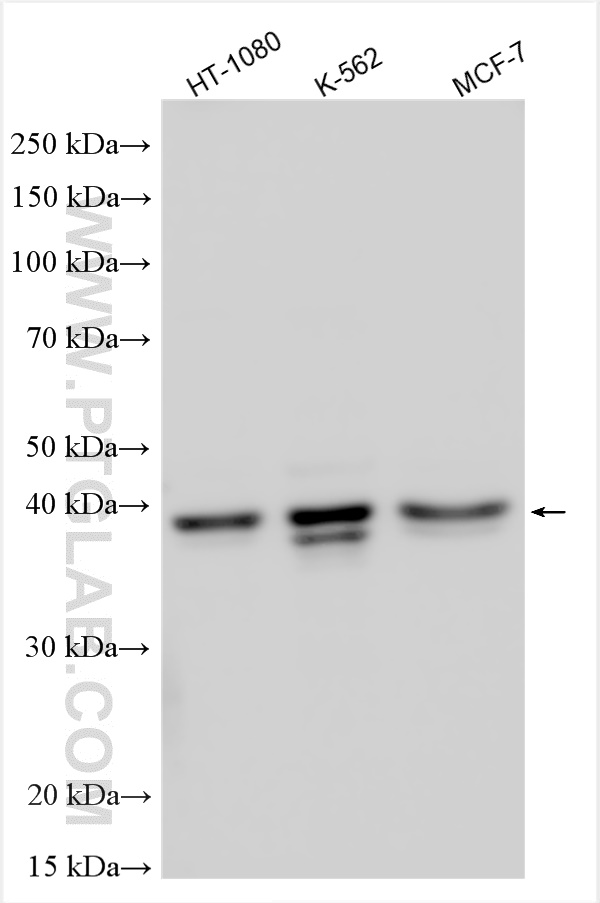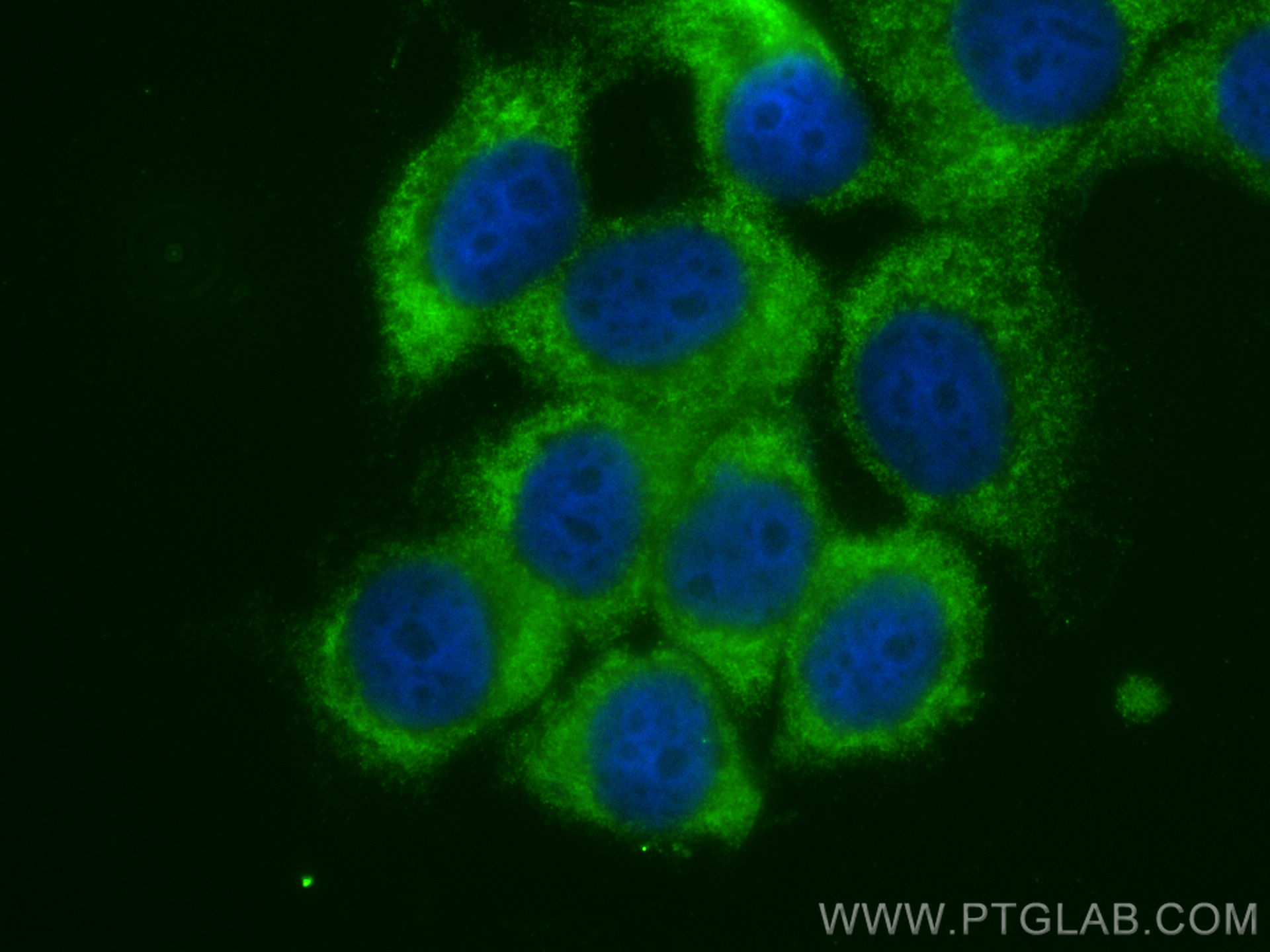验证数据展示
经过测试的应用
| Positive WB detected in | HT-1080 cells, K-562 cells, MCF-7 cells |
| Positive IF/ICC detected in | MCF-7 cells |
推荐稀释比
| 应用 | 推荐稀释比 |
|---|---|
| Western Blot (WB) | WB : 1:500-1:3000 |
| Immunofluorescence (IF)/ICC | IF/ICC : 1:50-1:500 |
| It is recommended that this reagent should be titrated in each testing system to obtain optimal results. | |
| Sample-dependent, Check data in validation data gallery. | |
产品信息
16141-1-AP targets PCBP3 in WB, IF/ICC, ELISA applications and shows reactivity with human samples.
| 经测试应用 | WB, IF/ICC, ELISA Application Description |
| 经测试反应性 | human |
| 免疫原 | PCBP3 fusion protein Ag9202 种属同源性预测 |
| 宿主/亚型 | Rabbit / IgG |
| 抗体类别 | Polyclonal |
| 产品类型 | Antibody |
| 全称 | poly(rC) binding protein 3 |
| 别名 | PCBP3-overlapping transcript 1, PCBP3-overlapping transcript, PCBP3-OT1, PCBP3OT, Alpha-CP3 |
| 计算分子量 | 313 aa, 33 kDa |
| 观测分子量 | 37 kDa |
| GenBank蛋白编号 | BC012061 |
| 基因名称 | PCBP3 |
| Gene ID (NCBI) | 54039 |
| RRID | AB_3085481 |
| 偶联类型 | Unconjugated |
| 形式 | Liquid |
| 纯化方式 | Antigen affinity purification |
| UNIPROT ID | P57721 |
| 储存缓冲液 | PBS with 0.02% sodium azide and 50% glycerol , pH 7.3 |
| 储存条件 | Store at -20°C. Stable for one year after shipment. Aliquoting is unnecessary for -20oC storage. |
背景介绍
PCBP3 is a member of the KH-domain protein subfamily. Proteins of this subfamily, also referred to as alpha-CPs, bind to RNA with a specificity for C-rich pyrimidine regions. Alpha-CPs play important roles in post-transcriptional activities and have different cellular distributions. PCBP3 is broadly expressed in various tissues, including the testis and endometrium. It has been associated with diseases such as dementia.
实验方案
| Product Specific Protocols | |
|---|---|
| WB protocol for PCBP3 antibody 16141-1-AP | Download protocol |
| IF protocol for PCBP3 antibody 16141-1-AP | Download protocol |
| Standard Protocols | |
|---|---|
| Click here to view our Standard Protocols |

